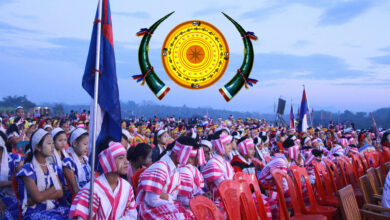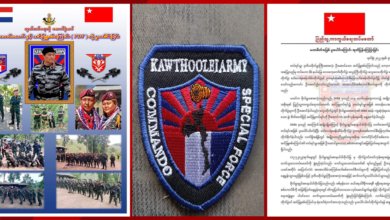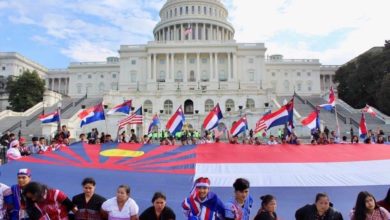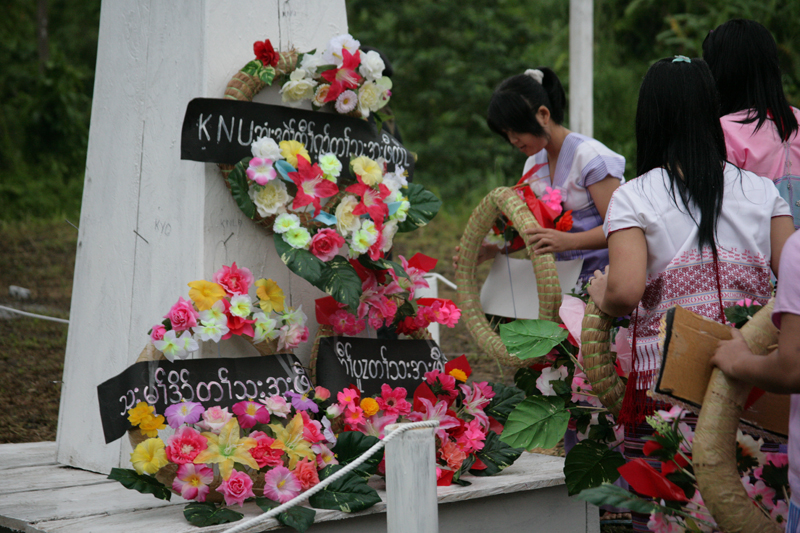Women’s Group Expressed Concern On Draft Interfaith Marriage Law

A wide and diverse range of women groups and civil society organisations have released the following statement on the government’s draft Interfaith Marriage Law. Karen News have taken the decision to run the full statement to generate debate and understanding in the community of the issues involved.
*Statement of Women’s Groups and CSOs on preparation of draft Interfaith Marriage Law
1. We believe that current faith-based political activities, including the arguments against interfaith marriage currently taking place in the country, are not in accordance with the objectives of the peaceful coexistence of all faiths and the prevention of extreme violence and conflict, but are instead events and ideas designed to distract the public before the 2015 election.
2. We view these events as delaying the momentum of transition to democracy, and as a hindrance to national peace processes and the Constitutional amendments desired by Myanmar’s people.
3. Elements of the proposed law place restrictions upon women’s equality and freedom do not meet international human rights standards, and do not comply with the Convention to Eliminate All Forms of Discrimination against Women (CEDAW) that the Government Acceded to in1997.
4. Rule of law and access to justice are the most effective measures to protect and provide Security for women. Urgent action is required against those who carry out various kinds of violence towards women.
5. Article 364 of the Constitution clearly states that “The abuse of religion for political purposes is forbidden…”. We need to be aware that the proposed Interfaith Marriage Act could be used by some for political gain at the 2015 Election, and because of potential unwanted consequences, great political caution should be taken.
6. Faith based extremist nationalism can destroy state peace and incite conflict; we reject all political violence that causes people’s physical and mental insecurity.
7. There are religious and ethnic differences among the nationals of Myanmar, and developing initiatives based on religion hinders the implementation of national solidarity and current peace building processes.
8. We will strive and endeavor in every non-violent way possible, to amend laws and regulations, including the Constitution, that discriminate against women, including the involvement of women in the political sphere.
9. The proposed Interfaith Marriage Act not only discriminates against Myanmar Buddhist women, women of other faiths residing in Myanmar, and indigenous people, but also places the responsibility of preserving race, religion, culture and traditions solely on women.
10. Moreover, the drafting of the Interfaith Marriage Act for the reason of preserving race, religion, culture and traditions, does not respect and acknowledge the reasoning abilities of Myanmar Buddhist women to think rationally and make decisions, and instead restricts and obstructs their freedom of choice to make decisions on issues directly concerned with their lives.
11. Women’s organizations, women’s networks and civil society organizations who are working actively to promote women’s rights and equality, strongly reject the President’s efforts to draft an Interfaith Marriage Act and to form a Commission, as the proposed law is based on discriminatory beliefs that women are generally physically and mentally weaker than men, and therefore need to be supervised and protected. This denies women the inherent rights of freedom of survival and freedom of choice.
We hereby send the following suggestions for consideration and implementation in order to truly promote and protect the well being of Myanmar women’s lives:
1. At present, the two national issues of amendments to the 2008 Constitution and the National Peace Process require immediate priority over the proposed Interfaith Marriage Law; the implementation of these issues should be taken seriously.
2. Instead of drafting and presenting the Interfaith Marriage Law, a highly contentious law
Inviting unnecessary negative outcomes, the State should work towards a law requiring the compulsory registration of all marriages regardless of race, religion and sex.
3. By law, there should be a specific age limit required for the registration of legal marriage of any man or woman.
4. The Government should: help and support the enforcement and effective implementation of existing public laws which are useful; make necessary amendments to laws regarding women (including the Constitution) which are directly or indirectly discriminatory to women; and up on its completion, pass the anti-violence against women law which is in the process of being drafted according to international standards.
5. Only when women are able to make decisions on their own that enables them to lead strong, healthy and successful lives, will the country realize genuine development. Therefore, in order for women to effectively serve their country and people in the most beneficial way, priority should be given to women’s education, health, and business opportunities, to build, and promote their abilities and decision-making skills.
6. It is better to raise people (either men or women) in a way that nurtures them to value and respect heritage, religion, culture and traditions rather than imposing the responsibility of preserving race, religion, culture and traditions of a country entirely on women.
7. Myanmar’s transition to democracy is being watched and supported internationally, and drafting laws which do not meet democratic ideals can damage Myanmar’s image and dignity and hinder democracy building. Drafting the Interfaith Marriage Law, a law that directly discriminates against the inherent rights of women, at a time when the Government is submitting a report to CEDAW committee in August 2014, would demonstrate the Government’s violation of both human rights and women’s rights and would be a disgraceful act that would invite international ridicule. We are therefore requesting you to earnestly reconsider this proposal.
*This statement is developed based on the Statement released on 2013, June 16 by women groups which expressed their concern on Draft Interfaith Marriage Law and added more recommendations.




